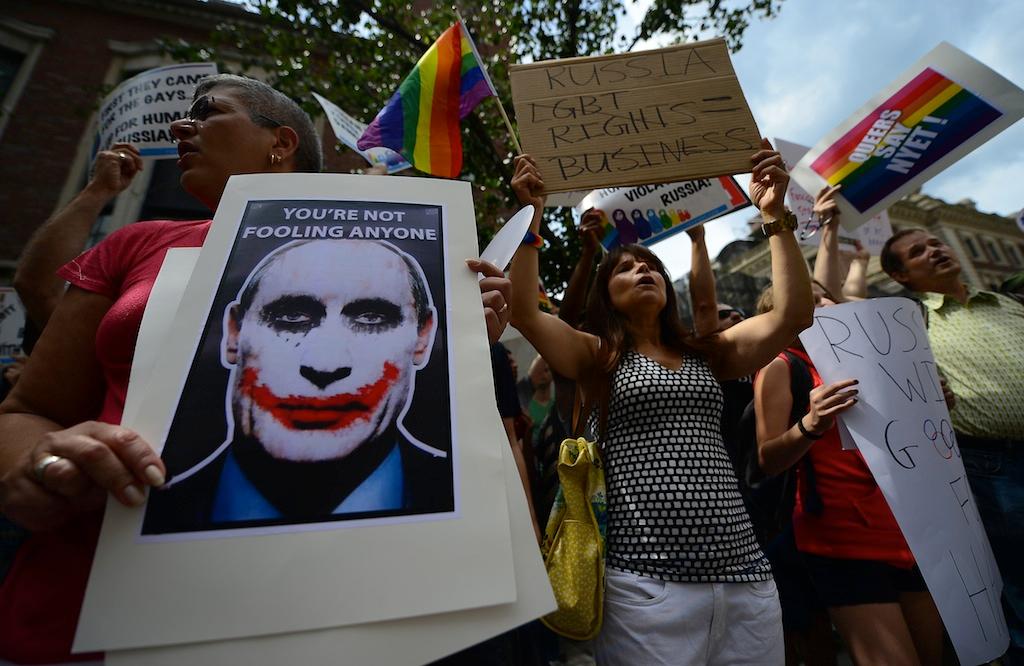Sochi Games gay rights boycott calls unique in Olympic history
Protesters hold a demonstration against Russian anti-gay legislation and against Russian President Vladimir Putin stands on gay rights, in front of the Russian Consulate in New York, July 31, 2013.
LAUSANNE, Switzerland – Though few Olympic Games pass without controversy, the 2014 Sochi Winter Olympics in Russia seems to be drawing more than usual, mainly for Russia's stance on gay rights.
Beyond matters of war and serious violence, there has rarely been talk of boycotting the Games over domestic political issues, particularly those concerning human rights.
Though the 2008 Beijing Olympics evoked criticism of China's various human rights violations, there was little talk about an outright boycott.
Some speculated the lack of controversy had to do with the world financial crisis and China's importance in global economy.
Though the Sochi Olympics may be unique, here are a few other examples of controversies that have surrounded the modern Games:
1936 – The Berlin Olympic Games were highly controversial given the recent rise of the Nazis to power. Despite threats of a boycott due to racist policies, the US and others participated, with African American Jesse Owens winning four medals much to the chagrin of Hitler.
1956 – The Melbourne Games were rife with controversy given the heated political situation around the world. The Suez Crisis saw a number of Middle Eastern nations boycott in protest. The Netherlands, Spain, and Switzerland all boycotted the games due to the Soviet Union's crackdown of protesters in Hungary.
1964 – South Africa was formally banned from taking part in the Tokyo Olympics and all subsequent Games due to Apartheid until 1992.
1972 – Though the 1972 Olympics in Munich became notorious for the killing of Israeli athletes, they also became famous for the expulsion of Rhodesia due to oppressive white rule.
1976 – During the Montreal Olympics, 20 African nations boycotted the games in protest of allowing New Zealand to participate. New Zealand's rugby team, the "All Blacks," had earlier defied a UN call to not participate in sporting events in South Africa.
1980 – The Russian invasion of Afghanistan caused no less than 65 countries led by the US, to boycott the Games in Moscow that year. This would cause the Soviet Union and other Warsaw Pact countries to boycott the Games in Los Angeles in 1984.
2008 – The 2008 Games in Beijing were unique after a string of non-controversial host cities from Barcelona to Athens. Though there was some outcry in the media and among rights groups, there was hardly a peep by governments threatening to refuse to send athletes to the event.
Every day, reporters and producers at The World are hard at work bringing you human-centered news from across the globe. But we can’t do it without you. We need your support to ensure we can continue this work for another year.
Make a gift today, and you’ll help us unlock a matching gift of $67,000!
